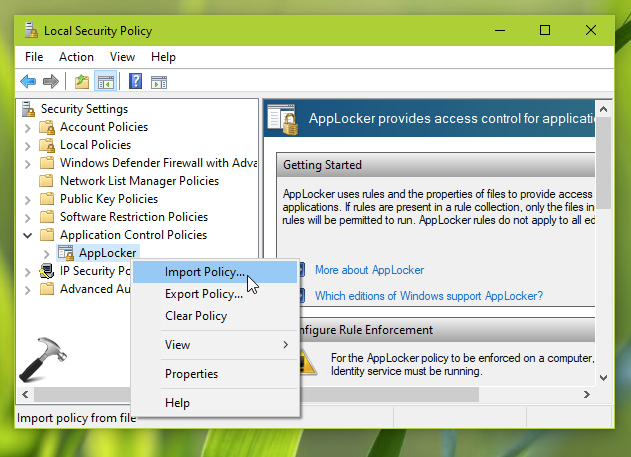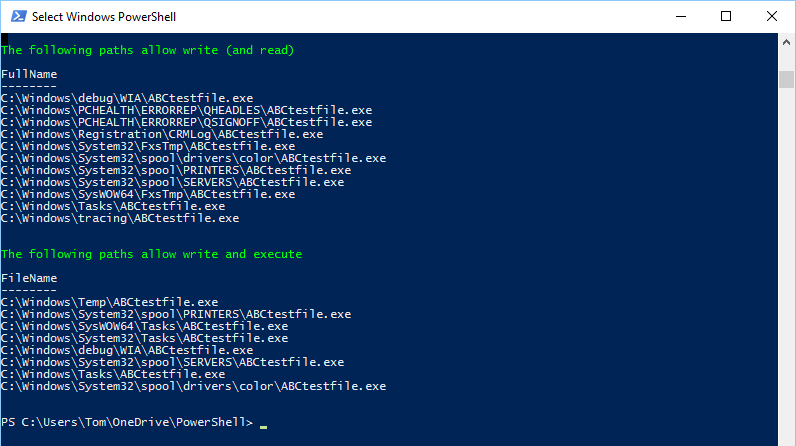

Software standardization: AppLocker policies can be configured to allow only supported or approved apps to run on computers within a business group.Licensing conformance: AppLocker can help you create rules that preclude unlicensed software from running and restrict licensed software to authorized users.

When AppLocker rules are enforced in the production environment, any apps that aren't included in the allowed rules are blocked from running. Protection against unwanted software: AppLocker has the ability to deny apps from running when you exclude them from the list of allowed apps.Windows PowerShell cmdlets also help you analyze this data programmatically. These events can be collected for further analysis. Application inventory: AppLocker has the ability to enforce its policy in an audit-only mode where all app access activity is registered in event logs.AppLocker addresses the following app security scenarios: Simplify creating and managing AppLocker rules by using Windows PowerShell.ĪppLocker helps reduce administrative overhead and helps reduce the organization's cost of managing computing resources by decreasing the number of Help Desk calls that result from users running unapproved apps.Create rules on a staging server, test them, then export them to your production environment and import them into a Group Policy Object.Use audit-only mode to deploy the policy and understand its impact before enforcing it.For example, you can create a rule that allows all users to run all Windows binaries, except the Registry Editor (regedit.exe). Assign a rule to a security group or an individual user.You can also create rules based on the file path and hash. Define rules based on file attributes that persist across app updates, such as the publisher name (derived from the digital signature), product name, file name, and file version.AppLocker is unable to control processes running under the system account on any operating system.


 0 kommentar(er)
0 kommentar(er)
